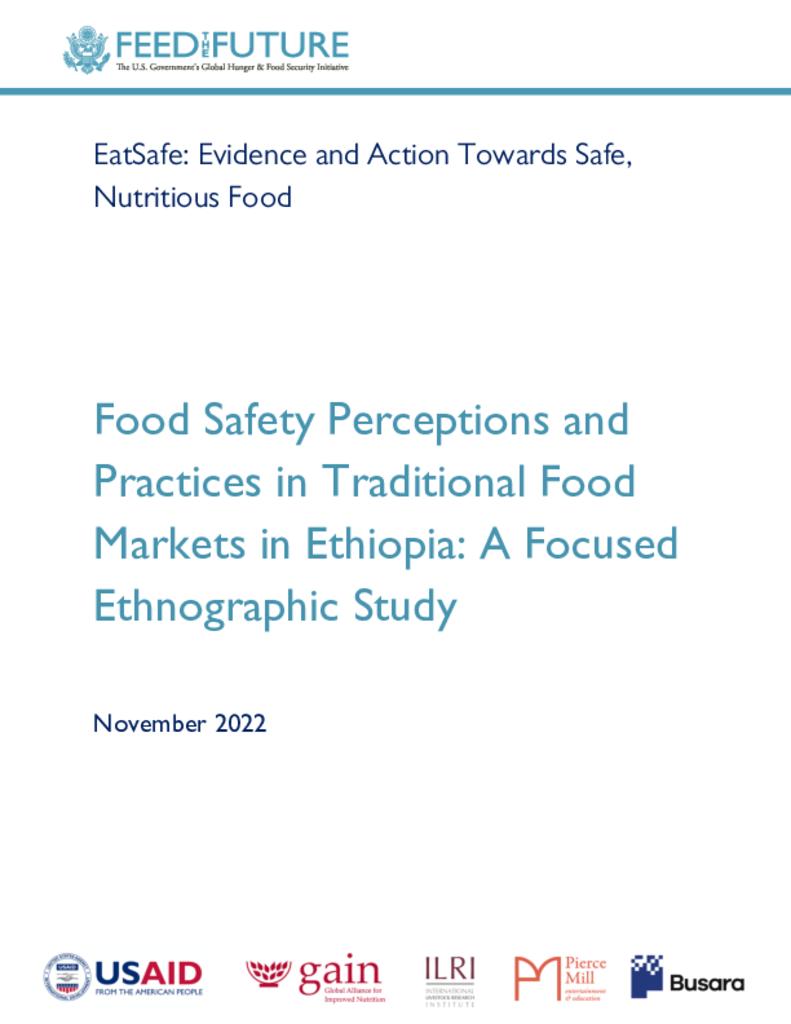Because influencing consumer demand requires a thorough understanding of how market actors perceive food safety and make food safety-related decisions, EatSafe undertook this focused ethnographic study in a traditional food market in Hawassa, Ethiopia. Over two phases from June to August 2022, data collection included market observations, in- depth, semi-structured interviews with 129 respondents, and cognitive mapping questions with a subset of respondents. Results indicate that women played a key role in the market as both vendors and shoppers. Both vendors and consumers held similar food safety beliefs and practices related to the lettuce, kale, and tomato. However, lettuce, often eaten raw, was seen as riskier than kale, which is eaten cooked, or than tomato when cooked. Overall, respondents did not clearly differentiate between food quality and safety. However, “quality,” which respondents closely related to “freshness,” was an important driver of both market and vendor choices, as was food prices.
